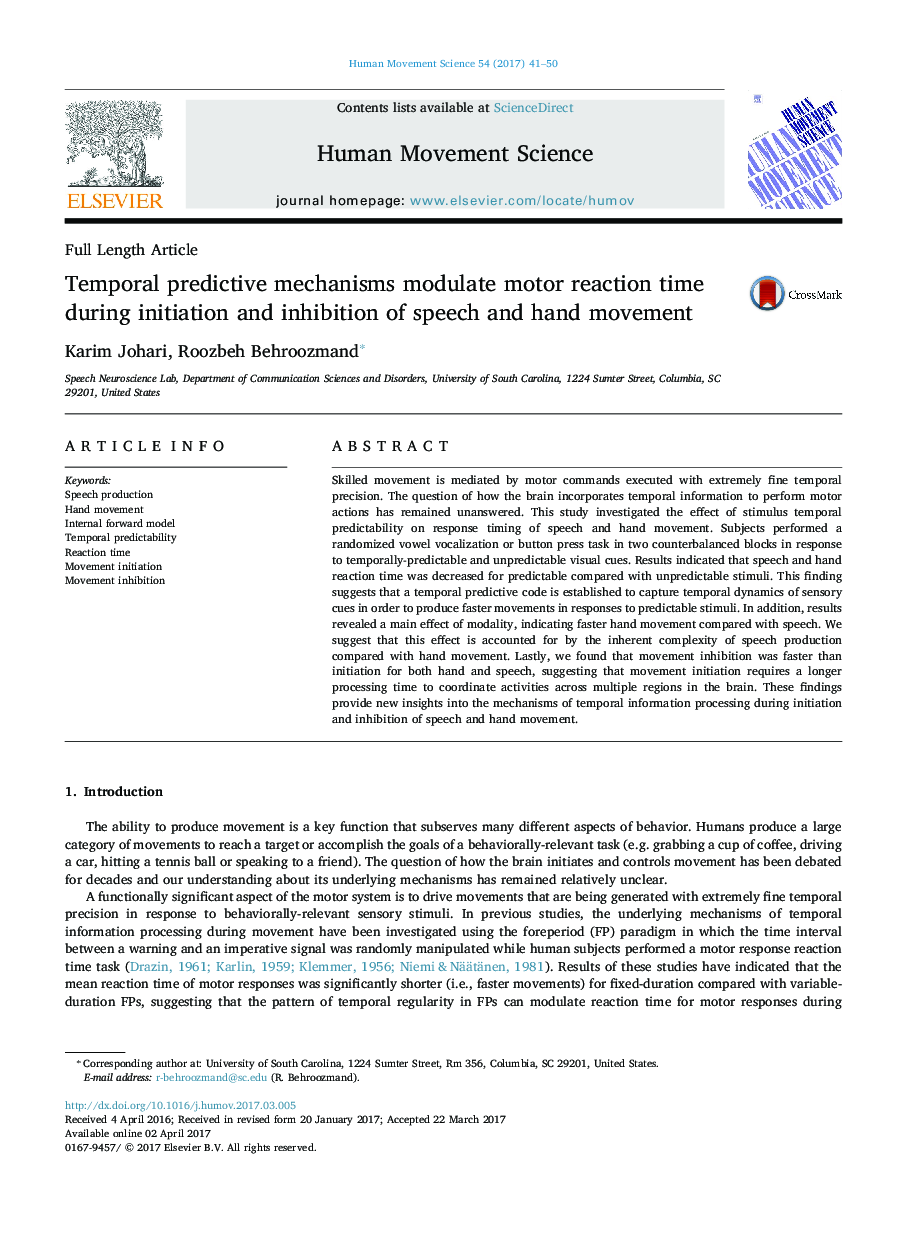| Article ID | Journal | Published Year | Pages | File Type |
|---|---|---|---|---|
| 5041965 | Human Movement Science | 2017 | 10 Pages |
â¢Movement reaction time is reduced in response to temporally-predictable stimuli.â¢The reaction time for hand movement is shorter than that for speech production.â¢Inhibiting hand/speech movement needs a shorter processing time than initiating it.
Skilled movement is mediated by motor commands executed with extremely fine temporal precision. The question of how the brain incorporates temporal information to perform motor actions has remained unanswered. This study investigated the effect of stimulus temporal predictability on response timing of speech and hand movement. Subjects performed a randomized vowel vocalization or button press task in two counterbalanced blocks in response to temporally-predictable and unpredictable visual cues. Results indicated that speech and hand reaction time was decreased for predictable compared with unpredictable stimuli. This finding suggests that a temporal predictive code is established to capture temporal dynamics of sensory cues in order to produce faster movements in responses to predictable stimuli. In addition, results revealed a main effect of modality, indicating faster hand movement compared with speech. We suggest that this effect is accounted for by the inherent complexity of speech production compared with hand movement. Lastly, we found that movement inhibition was faster than initiation for both hand and speech, suggesting that movement initiation requires a longer processing time to coordinate activities across multiple regions in the brain. These findings provide new insights into the mechanisms of temporal information processing during initiation and inhibition of speech and hand movement.
